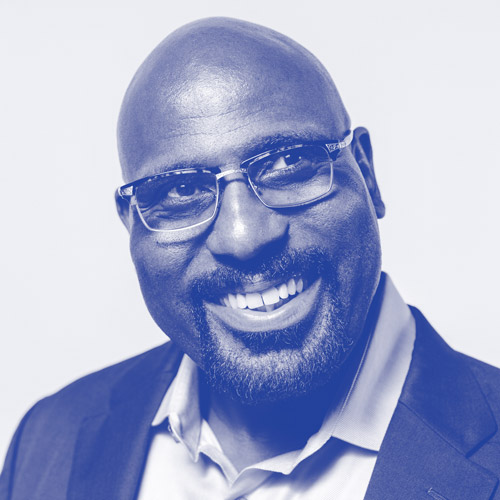For many consumers, Edgewell Personal Care may not be a household name, but its brands certainly are, including Schick, Edge, Playtex, Stayfree, Carefree, Banana Boat, Hawaiian Tropic, and Wet Ones. And Tony Bender, chief information officer and vice president of global business services, is charged with ensuring that all of the company’s IT systems are operating at peak efficiency to support the company’s global team of 6,000 colleagues and more than twenty-five brands in fifty-plus countries.
In addition to his traditional CIO responsibilities, Bender also oversees Edgewell’s global business services (GBS), which includes global payroll and workforce administration in human resources. He also drives global productivity and cost improvements for indirect procurement.
Edgewell recently separated from its former parent company, Energizer. Since then, one of Bender’s major initiatives has been consolidating the remaining three separate legacy ERP systems. The disparate systems have inconsistent data and incompatible structures and standards that result in inefficient data extraction and compilation for generating management reports.
He points out that separate systems negatively impact integration of newly acquired companies. “The more we can simplify our IT landscape, the easier it is to bring acquisitions into the fold,” Bender explains. “Given the size of many of our acquisitions, anything we can do to integrate a few months faster can easily mean achieving millions of dollars in incremental savings.”
One new aspect of technology that is being introduced is based on SAP’s S/4HANA platform, which immediately increases speed and agility. “S/4HANA’s memory resident technology enables reporting to be done directly against the source data, which we can access many times each day without needing to extract, scrub, or aggregate,” Bender says. He predicts that the overall application rationalization, standardization, and simplification will lead to a “single version of the truth” across the entire enterprise. It will also facilitate reduced cost of ownership, data harmonization, and more efficient, cost-effective ongoing innovation.
S/4HANA is also creating a near real-time environment for additional SAP applications that support a variety of business critical processes: SuccessFactors for global HR information; Ariba for improved procurement visibility, analytics, and strategic sourcing; Concur for managing travel and entertainment; and Hybris for e-commerce applications. Oracle HFM/HPL and Demantra have also been implemented to improve financial management and planning, and it can better manage trade promotion.
These extensive changes to Edgewell’s infrastructure have required an equally extensive focus on change management. As part of the corporate separation from Energizer, for example, twenty-five different payrolls had to be integrated into the new global payroll model. Over the course of twelve months, Bender and his team held regular meetings with Xerox and ADP to address pain points and implement a triage process for finding solutions. This included educating the colleague base, providing an online portal, and access to the Xerox Service Center so they could ask questions, get timely responses, and address outstanding issues.
“A large part of our approach was listening and being attentive, and then responding quickly to the feedback we received,” Bender explains. “We had an ongoing hyper-care process that ensured we could navigate and respond appropriately.”
After phasing in the last company payroll in April 2016 and resolving approximately 21,000 cases through the Xerox Service Center, the GBS HR team reports that all payroll processes have stabilized in every market around the world.
A little more than a year after the Energizer separation, Edgewell is already seeing benefits. GBS indirect procurement is on track to exceed its projected savings targets by 50 percent. Bender and his team are also planning to expand their partnerships with all functional cost center owners with a new initiative to optimize processes to drive future productivity improvements and cost efficiencies. “We want to continue having indirect procurement heavily involved in all areas of spending and helping to institutionalize productivity improvement as part of our company culture,” he says.
Additionally, Bender will be leveraging a broad “digital first” perspective as part of an overall IT strategy. The Concur and SuccessFactors systems from SAP are natively mobile-enabled and the S/4HANA ERP system—hosted in Edgewell’s private cloud environment—will also support the use of additional mobile applications.
Looking ahead, IT is partnering with the marketing group to develop a road map that will help guide specific initiatives focused on leveraging digital capabilities to further grow the business.
Bender has been able to maintain a high rate of success with all of these initiatives through what he calls “keeping your eye on the prize.” This means never losing sight of the original business case that led to project approval and funding, and staying focused on the specific details that facilitate the intended objectives. He hears questions such as, “What is the business case that needs to be delivered?” Or, “How will our solution enable the expected benefits?” He finds that these sorts of inquiries are helpful in reinforcing the appropriate priorities.
“We work with our business partners to identify needs, align them with technology solutions, and then paint a compelling vision to help the business clearly see the path forward. That’s how we help provide leadership to drive the agenda with the business,” he says.
When asked if there is anything more to his philosophy, Bender is fairly blunt. “Most businesses operate from a perspective of ‘show me the money,’” he says. “Quite simply, it’s my job and the job of my team to do that—to drive the most value for the company from every opportunity we can find.”

